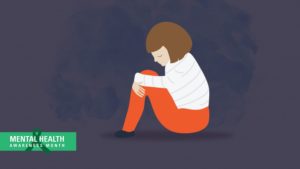Below is an excerpt from the Michigan Medicine Health Blog
By Stephanie Abraham
A popular yet controversial Netflix show highlights a serious issue. A Michigan Medicine clinical social worker offers advice to help identify a person at risk.
The new Netflix series “13 Reasons Why” follows a high school student who takes her life by suicide after a series of traumatic but common teenage events. The main character, a 17-year-old, releases a series of audio recordings that detail the circumstances leading up to her death.
The fictional series, based on a 2007 young adult novel, has been widely criticized and discussed in the media, among parents and mental health professionals, and by young people.
Some say the program glorifies suicide. Singer-actress Selena Gomez, the show’s executive producer, who has struggled with depression herself, says the series — rated TV-MA — is meant to provoke realistic discussion.
Still, “it’s hard to avoid sensationalizing suicide,” says Meg Jennings, LMSW, social-work supervisor for Michigan Medicine’s Regional Alliance for Healthy Schools. The initiative provides school-based health programs and clinical services, including individual and group therapy, at six locations in Washtenaw County and three in the Flint area.
The subject has touched countless families.
According to the American Psychiatric Association, depression may affect up to 1 in 4 teens by the end of their adolescence. Suicide is the second leading cause of death in 15- to 24-year-olds, second only to accidents.
Jennings, an expert on teen suicide, recently watched “13 Reasons Why.” She explained some of the warning signs for suicide that parents and peers should know.
A need for vigilance
Someone who is potentially suicidal will talk about death and having no reason to live. The individual may see himself or herself as a huge burden, making comments such as, “When I am gone, things are going to be better for everyone else.”
The person may have unbearable pain and no hope for future. Often, those contemplating suicide feel that continuing to live is overwhelming or unbearable.
But that outlook also can shift.
“Sometimes, if someone’s mood has improved it may be because they have decided to commit suicide,” says Jennings. “It is a good idea to be cognizant of this if you have interacted with someone who was deeply hopeless just days before.”
You should take note and immediate action if the person is talking about a specific plan to carry out his or her death, Jennings adds.
